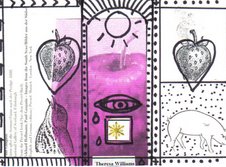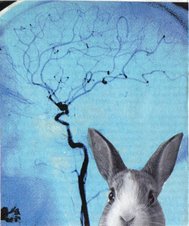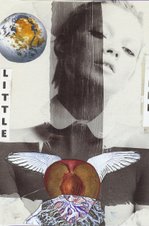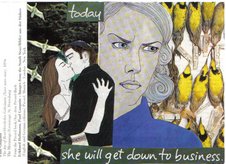

If you could take a pill that would lessen the impact of a traumatic event on you, would you take it? According to 60 Minutes last night, experiments are now going on that would make it possible to keep unpleasant events from becoming debilitating memories. Scientists have discovered that adreneline helps to solidify memories, and thus blocking adreneline has the capacity to lessen the impact of traumatic events on us. Not surprisingly, the military is very interested and has chipped in money for further research.
As wonderful as the implications are for a pain-free life, it seems to me that his medication also has the potential impact art and religion, since suffering is rooted in both.
Many artists identify strongly with Saint Sebastian and think of suffering as a motivation to the creation of art.
Regarding this new medication, I wonder how a determination would be made as to which suffering is debilitating and which gives us meaning and inclines us to wisdom? Erasing suffering is the easy way, but is it the best way? I find myself wondering: What if Dorothy Allison had taken this drug: would we have Bastard Out of Carolina? Would Hemingway have written "Big Two-Hearted River" or Farewell to Arms? Would we have the anti-war poetry of Wilfred Owen?
I don't mean to put art before the well-being of any individual. But might the poetry of Owen affect some individuals--who may one day become leaders-- in such a way as to make war unthinkable to them? Would this give purpose to Owens' suffering? And might this future leader who has been influenced by Owen make life better for us, more peaceful, more safe?
Being able to empathize with Jesus' suffering is important to Christians. It isn't just the fact of his suffering, it is Christians' identification with Jesus' suffering that makes the spiritual life complete and meaningful for them. The same was true for believers in Odin, who hung himself upon a tree. And then there are the Buddhists who see our attachment to things being as the cause of our suffering. Although I no longer identify myself as Christian, I still find Jesus' suffering, as well as Odin's, compelling and meaningful. I also have some realization of how my attachment to things makes me unhappy, and I think a lot about what to do about it.
And then there is Sisyphus. It is harder to find a better example of "meaningless suffering" than Sisyphus.
Albert Camus wrote a philosophical treatment of the myth of Sisyphus. In the last chapter Camus compares humans' existence with the plight of Sisyphus, who was condemned by the gods to repeat the meaningless task of pushing a rock up a mountain only to see it roll down again. The essay concludes, "The struggle itself is enough to fill a man's heart. One must imagine Sisyphus happy."
It was this idea that such a profound impact on Bobby Kennedy, who changed his view on the Death Penalty from PRO to CON as a result of reading Camus. Camus' work also gave him perspective on his own suffering over the loss of his brother Jack.
I am not imagining a drug-free world or suggesting that a drug-free world would be better than the world we have now. I know and fully accept that many people need medication in order to live fruitful lives.
I'm just trying to explore for myself some of the implications of suffering in our lives.














2 comments:
Reading this entry and the next one together -- material to ponder for a long time.
My immediate reaction is to say that suffering can enlarge our capacity for love and compassion, provided that we face it head on. Sometimes it is too painful to manage and then I think it has more of a numbing effect, but as the mind and heart heal, we can gradually open them to the experience of pain and find more space for love.
In our culture, we have a massive resistance to such a response - that American "can-do attitude" coupled with a media driven by a self-help frenzy and a refusal to acknowledge the darkeness of human pain, even as our news is plastered with the reality of violence.
It's not surprising that Guernica would have been covered during Powell's UN visit, and it's not surprising that Wilfred Owens's poetry is not featured on the front page of the paper every morning. I don't think those are expressions that our leaders have spent much time contemplating.
A very rich entry, and I agree that suffering has importance, especially in the arts. I think even physical suffering to a degree can make one feel more REAL and ALIVE than dulling every sensation with drugs.
Post a Comment